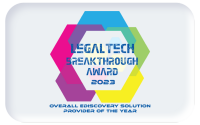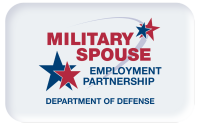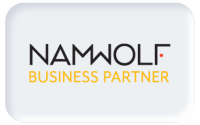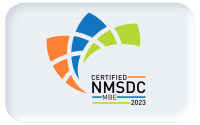As I just got back from CLOC last week, I continue to be amazed at the various roles and responsibilities shouldered by Legal Operations staff. Still one of the fastest growing roles in legal departments, the responsibilities often assigned to these teams are varied and all over the map in terms of impact on the business, not just the legal department.
In speaking with many Chief Legal Officers (CLOs), Legal Operations Directors (LODs), Director of Legal Operations (DOLOs) and Legal Project Managers (LPMs) last week, these are the main responsibilities I see most prevalently assigned to Legal Operations:
- Department Budgeting & Staffing
- People Management
- Vendor Management
- Outside Counsel Management
- Knowledge Management
- eBilling
- Contract Management
- eDiscovery Strategies
- Case Management Strategies
- Process Improvement & Business Re-engineering
- Metrics Gathering and Business/Operations Reporting
- Anything and everything else where there is a high $$ or resource cost
 There’s a lot of ‘management’ responsibilities in that list. That’s one of my big takeaways from CLOC this year – that these teams do a lot, and the responsibilities only seem to be growing each year.
There’s a lot of ‘management’ responsibilities in that list. That’s one of my big takeaways from CLOC this year – that these teams do a lot, and the responsibilities only seem to be growing each year.
In general, Legal Operations Departments (LODs) are responsible for driving and supporting a legal department’s operational excellence.
The goal is to run legal as leanly as you would run any business, focusing on intelligent systems, resourcing and process. These roles often own responsibility for coordinating and supporting daily administrative and operational tasks within legal, but also usually own general business planning, financial operations, HR, communications, knowledge management and creating and implementing corporate initiatives as well.
I have found that the people who usually gravitate to these roles are extreme multi-taskers, metrics and lean process true believers and incredible team players. The team player bit is really important when you realize that these people often have to create strong relationships, not just within the framework of a legal department, but with other stakeholders within the company like finance, procurement, IT and up to the Exec team and possibly the Board. They also have to be really, really smart. That seems to be the reoccurring thread through every LOD employee I’ve ever met.
And last week I met about 50 more of them, and while we discussed a lot of things, the ones that reoccurred most and seemed to be in the forefront of their minds are below.
Outside Counsel, Vendor Management & eBilling
Many of the LOD staff I met last week oversee, to some degree, their Legal eBilling and Matter Management systems. They are responsible for the selection, setup, policy creation and vendor onboarding for use of these tools.
Every manager was either personally responsible for, or had a team member assigned to, Outside Counsel Management and Vendor Management. Selection of who to work with, where and managing the whole RFI/RFPs process, as well as negotiating and managing pricing structures and owning the overall budget/cost analysis fell squarely on their shoulders. The involvement, level of activity and time it took to do all of that seems like a job on its own.
Project Management
An interesting observation at this year’s conference is the focus on education for LOD team members in basic project management skills. That seemed to be on everyone’s lips this year too. It does make sense though – there are so many simultaneous tasks/projects running at any one time that the skills of multi-tasking, tracking and reporting are taking center stage when I comes to career development.
General Legal Administration and Operations
Not new to the role, but often overlooked in importance, are the daily admin and operational tasks that help achieve an LOD’s goals for running an efficient department. Key to this role is the development and maintenance of KPIs – key performance indicators/metrics – to measure programs and processes.
I sat in several sessions where LOD members showed their KPI dashboards or their operations metrics and people went mad to snap photos so they could replicate them in their own LODs. Knowing which metrics are important and understanding what to measure to achieve impact is still one of the hardest aspects of any lean or efficient process.
And this is why conferences like CLOC are so great – peers get together to share ideas on how to solve problems, and those who are not as sophisticated in efficiency can pick up some great tips and strategies from those who are further along.
TCDI goes to CLOC because our sweet spot is in improving efficiency and productivity. Over 70% of our staff is Lean Six Sigma (LSS) trained (many are black belts), and the remaining 30% are on their way. We understand how import metrics are, we know that AFAs and Fixed Fee models can be game changers, and we totally buy into the idea that ‘waste’ sucks.
Which is why: we have combined our eDiscovery and Litigation Management tools into a single platform; we recommend single-instance storage pretty much all the time; we re-use data wherever and whenever possible; we have embedded easy to understand (and easy to use) TAR tools and passive dashboards and reporting into all of our tools.
Gone are the days of counsel having to learn multiple tools, of importing and exporting productions from an eDiscovery to a Case Management to a Trial Presentation tool. We have also streamlined review with tools that help reviewers and QC’ers go faster and be more consistent, and we have really thought about what is the best use of people’s time when designing all of our proprietary technology and workflows.
I learned a lot from the LOD team members I met this week, and I’m looking forward to seeing how we can continue to grow our products and services to support these multi-tasking, lean process believing, team oriented LOD smartie-pants.





